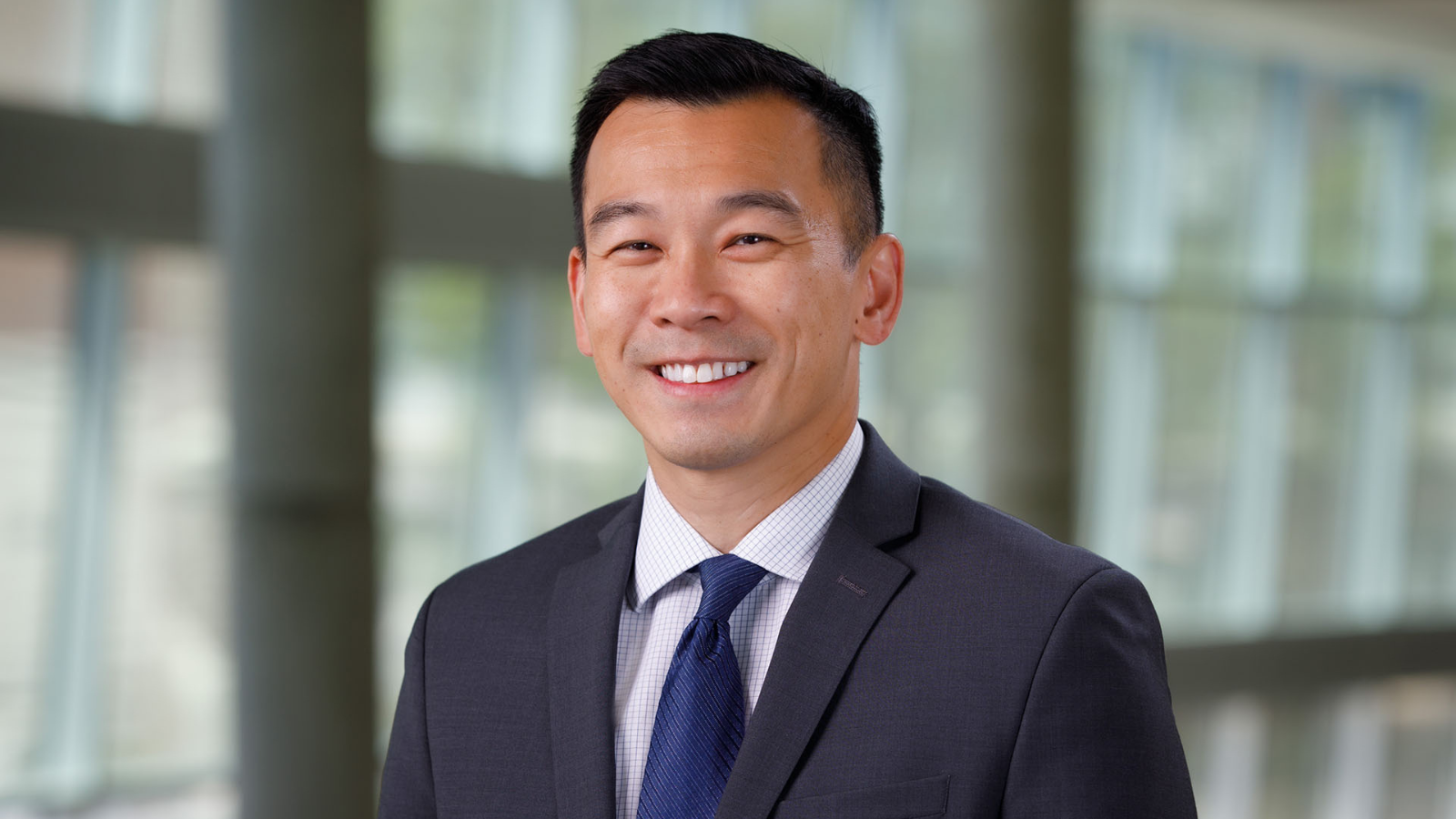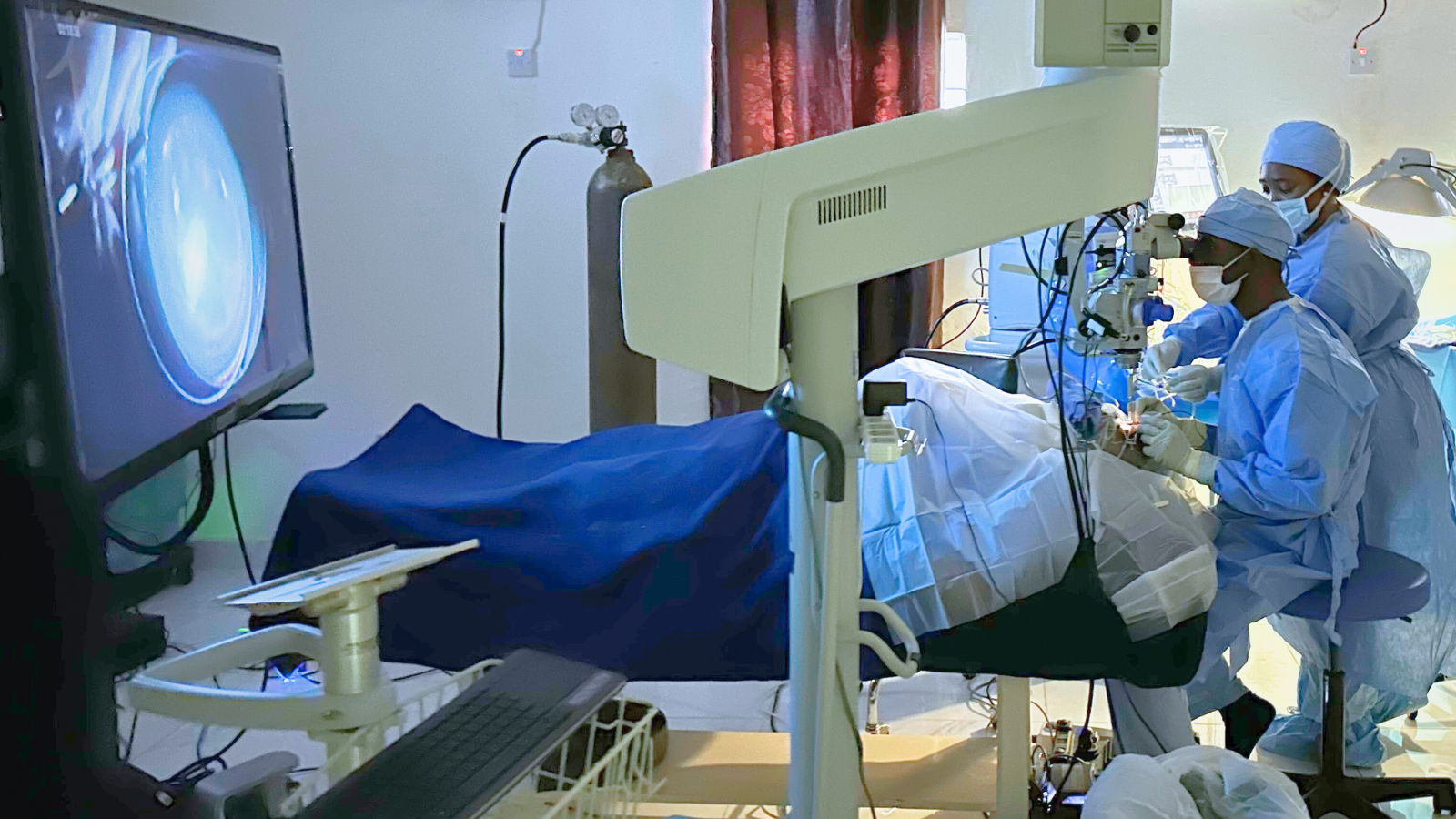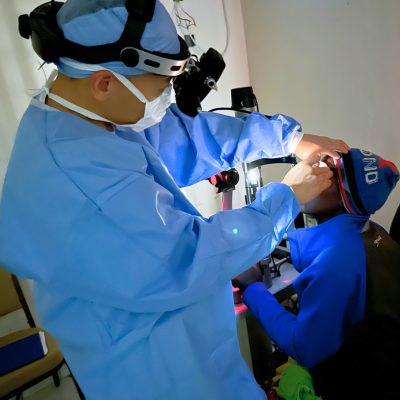
Dr. Steven Yeh, Director of Retina and Uveitis at the Truhlsen Eye Institute at the University of Nebraska Medical Center, has focused his expertise to provide care and investigate the spectrum of eye disease in Ebola survivors in the U.S. and West Africa. He and his team have also studied the ophthalmic consequences of COVID-19 and the local mucosal molecular and immunologic responses. These areas of emphasis related to Ebola, COVID-19 and emerging infectious diseases are especially applicable to the NSRI mission.
Dr. Yeh has published more than 180 scientific articles on infectious diseases of the eye, immunotherapy for noninfectious uveitis, drug delivery, advances in diagnostic imaging and pathogenesis of ocular inflammation. He is a member of the American Uveitis Society Executive Committee, American Society of Retina Specialists, Retina Society and Macula Society, and he has served as a consultant to the World Health Organization (WHO) Global Outbreak Alert and Response Network with prior outbreak response work in Liberia, Sierra Leone and the Democratic Republic of the Congo.
Q&A
Q: Why are you interested in supporting national security?
National security is of profound importance to all of us. As physicians and researchers, particularly those of us who work in resource-limited settings, we understand how compromised national security can compromise health security, individually and from a public health standpoint. I am an ophthalmologist, retina surgeon and an infectious eye disease specialist. As such, I am committed to the medical and surgical care of patients with vision-threatening eye disorders. Maintaining national security is important for health systems including vision health, and disease detection of infectious conditions is important on a global level.
Q: What national security challenges do you think you could offer your expertise to solve?
Our team's expertise is multidisciplinary in nature, and we collaborate to understand the clinical findings associated with high-consequence pathogens. Understanding how the eye may serve as a useful surveillance organ through genomic and immune detection of pathogens is a burgeoning field and one that may prove useful given the need to understand biological threats.
Understanding biological threats and how organ systems such as the eye are affected has a breadth of study. Our capabilities also include highly technical set up of ophthalmic equipment, surgery and instrumentation in resource austere settings. In addition, we have strong partners in ophthalmic imaging and artificial intelligence of diabetes, which may prove useful for disease detection and as a way where innovation can address resource gaps.
Explore some of Dr. Yeh's research via the NSRI publications database.
Q: Tell us about your experience with national security research.
Our group has worked closely with the World Health Organization (WHO) Viral Hemorrhagic Fever Branch, the National Eye Institute, U.S. Agency for International Development (USAID) and a number of other organizations to address eye disease in Ebola survivors while also developing vision health systems in Sierra Leone. Our work focuses on understanding eye disease that affects Ebola survivors, whether virus may persist in the eye, an immune sanctuary site, and the immune response. Besides Ebola, we have also worked to understand eye disease in Lassa Fever, COVID-19, and more recently, mpox.
Read more about Dr. Yeh’s work on vision care aid in West Africa:
- 6/13/2023 | Med center grant will aid vision care in West Africa | UNMC Newsroom
- 4/10/2019 | Eye Care for Ebola survivors | World Health Organization News
Q: What do you see in the next five or 10 years in your space that you think is important for national security leaders to consider?

Within the areas of national security, understanding the range of threats including biological, chemical, radiological, nuclear and explosive threats and how they can affect organ systems such as the eye is a unique and important area.
Within the biological threat space, our group has learned that setup of vision health infrastructure can translate into further opportunities for care, education and research in areas that previously did not have access. This has been particularly true in Sierra Leone where we setup the first Vitreoretinal Surgery system for 8+ million people who previously did not have access to these services. This setup was designed to understand eye disease in Ebola survivors but also led to our ability to fix conditions like retinal detachments, which are difficult or impossible to address in much of West Africa. I can see continuing to understand biological threats relevant to national security and developing systems of care through this to have sustained dual impact.
Q: What are you working on now that excites you and why?

Within Nebraska, we have developed an artificial intelligence (AI) program to screen for diabetic retinopathy with Family Medicine and Internal Medicine specialists and subspecialists to improve access to care. While challenging, the potential to improve the quality of life of individuals including children, adults, and elderly patients drives our team to continue the often-challenging work in the U.S. and abroad.
Learn more about Dr. Yeh via his UNMC bio.

